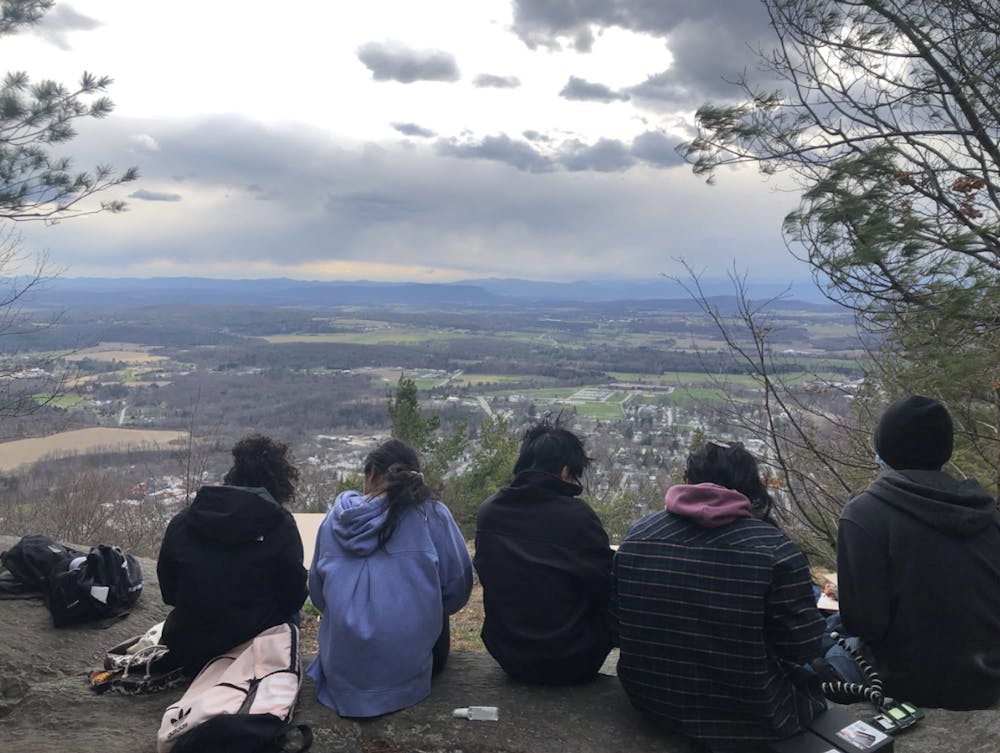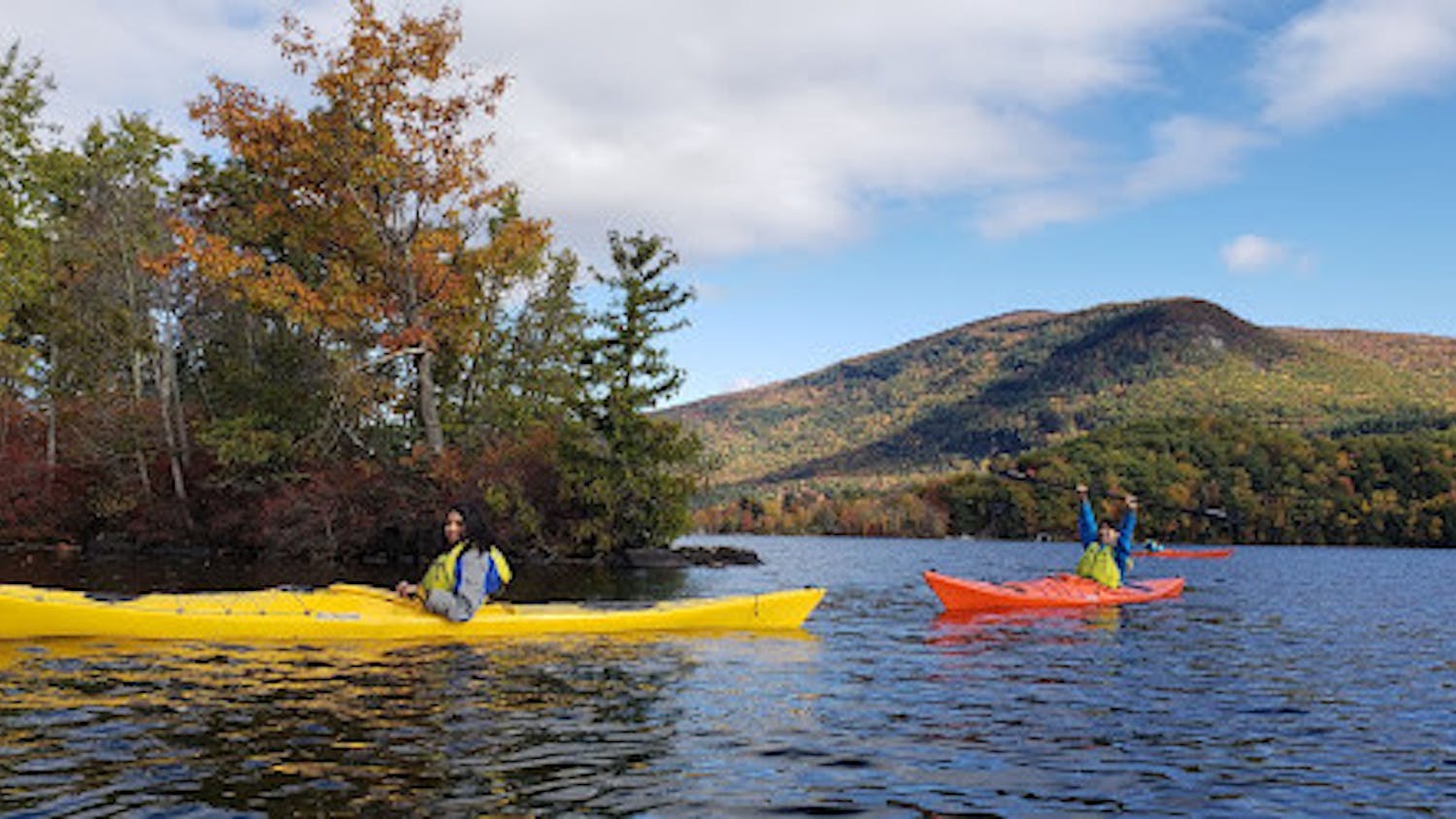As temperatures rise in Middlebury, students and locals alike can be seen spending time outside and enjoying the sun, as long walks, icy plunges and hikes become more common. Although one might equate warmer temperatures with ideal hiking conditions, that’s not quite the case, because spring in Vermont often means mud season.
“Mud Season is the period between winter and spring where thawing occurs, and is informally referred to as Vermont’s fifth season,” according to an article by the Green Mountain Club. Mud season typically lasts from late March or early April to early June.
As the article explains, the muddiness is due to Vermont’s winter season. As with other northeastern states, long winters provide time for the ground soil to freeze up to 60–70 inches deep. Then, once temperatures rise, surface level frozen ground thaws and releases water.
More than just creating a mess for hikers, hiking during mud season can actually damage trails. Foot traffic on muddy trails can lead to soil compaction, leading to denser, less aerated soil. This makes it harder for water to drain into the soil, making plants work harder to push through.
“Long term, this degrades the quality of the trail by reducing its ability to absorb water, which causes increased flooding later. It also makes it harder for vegetation to grow,” according to Green Mountain Club.
Elise Chan ’24, a leader of FIRE and head guide for Middlebury Mountain Club, gave guidelines for traversing mud and puddles while walking.
“If you go around, it widens the trail, and has a greater impact. That’s why having great shoes is important, because you’re going to have to walk straight through some mud,” Chan said.
When asked for her craziest hiking-during-mud-season story, Chan recalled one hike at Widow’s Clearing, near the recreation center at Moosalamoo, where it was so muddy she pulled her shoes off and walked around in her socks.
Asked for the best footwear for hiking during mud season, Chan suggested hiking boots or running shoes and recommended hosing them down after. Waterproof socks are also great, she said. The college gear room has waterproof hiking boots available for free, which can be accessed at go/gear.
What should college students do with muddy clothes when they get back to their dorms? Laying them out on a ledge, hosing shoes down, stuffing them with newspaper to help them dry, and even washing socks in the shower could be a good place to start, Chan suggested.
She emphasized that students should do some research before going on hikes, to determine which trails are open during mud season. She recommended using trailfinder.info, a resource for hikes in Vermont and New Hampshire. Navigating to trail status after clicking “find trails” in the menu tab allows for people to sift through which trails are open, partially open and closed.
Trails may be closed for other reasons besides mud, Chan added. A lot of trails, such as Snake Mountain and Rattlesnake ledge, close for peregrine falcon or other birds nesting.
Rather than closing-off options, having more information about proper trail usage ensures trails are protected for future hikers, and that the best paths are chosen.
Reflecting on the aspects of hiking she particularly enjoys, Chan spoke about the land.
“It makes me feel more connected to this area, and it makes Middlebury feel like home, which is important given how much time we spend here,” she said. “I’m super connected to the landscape where I live [in Seattle] … and that’s something really important to me. It’s cool to get off campus, and see what’s around here. I feel more like a person,” she said.
Mary Nagy-Benson ’24.5, is currently enrolled in Environmental Geology, a class that goes on labs in nature to see geologic features discussed in class, like the formation of mountains and different soil sediments.
“I love being able to see what we learn about in person and really engage with the material,” she said, adding that it’s special to have a geologist explain various geologic features seen during labs.
“My favorite part about going on hikes in general is taking a step out of daily life and feeling so enveloped in nature and non-human systems,” Nagy-Benson said.
Middlebury Mountain Club, as well as FIRE, provide guided opportunities for a plethora of outdoor activities, including hiking. Opportunities and more information can be found at go/ideal and go/bipocrec.

Julia Pepper '24 (she/her) is the Senior Local Editor.
She previously served as a Local Editor. She is a Psychology major and French minor. This past spring she studied in Paris. She spent the summer interning at home in New York City, putting her journalistic cold calling skills to use at her internship doing outreach with senior citizens. In her free time she enjoys reading and petting cats.




